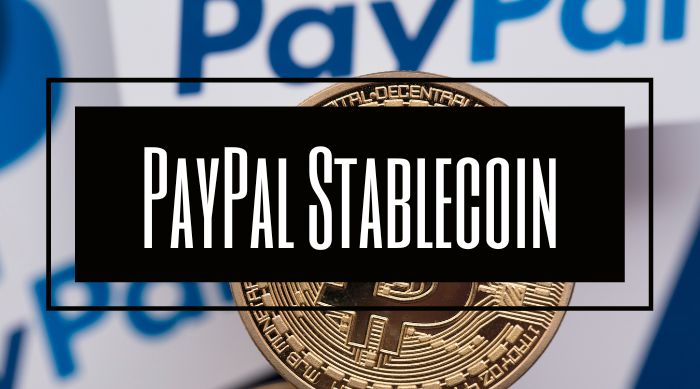In the earliest part of 2022, PayPal announced it was exploring the development of a stablecoin, and in February of the same year, a PayPal rep confirmed to the publisher of Cointelegraph that PayPal stablecoin code was embedded in an iOS app.
That alone doesn’t mean much until a coin is actually rolled out; Meta (the company formerly known as Facebook) tried to introduce its own stablecoin in 2019 called Diem (among other names), but that was shut down after initial resistance from federal regulators over a variety of issues including potential money laundering.

PayPal’s version of a virtual currency would likely be more successful for a variety of reasons, not the least of which is a pledge to work closely with regulators to ensure compliance. PayPal has confirmed their stablecoin would be tied to the U.S. dollar.
What Is A Stablecoin?
There are two basic types of virtual currencies; one is untethered to real-world money such as Bitcoin and Ethereum. Those coins are valued based on the good faith and enthusiasm of the investment community and their value is subject to volatile changes.
A stablecoin, on the other hand, is backed by real-world currency. It has a value equivalent to the value of the currency it is tied to, so you could purchase a coin backed by the U.S. Dollar on a one-to-one exchange, one coin for one U.S. Dollar. This can create less volatile trading conditions for these coins since they don’t fluctuate as wildly.
The PayPal StableCoin
At press time, PayPal has not released a native virtual currency and we are only discussing plans for the payments giant to do so. And PayPal has definitely announced it is looking into developing its own stablecoin. The view in 2022, when many of the original articles about this surfaced? That it’s only a matter of time before the speculation ends and the coin is actually launched.
But if you wonder whether this company is only dipping its toes in the virtual currency waters, it’s good to keep in mind two important things.
One is the disruptive nature of the company in the payments space to begin with; nobody expected PayPal to become the online giant it has but enterprises like eBay, Etsy, and Patreon have all helped the company to become almost too big to fail in the online retail payments space.
Moving into cryptocurrency is a logical move. The real question is how conservative those moves might be in terms of working with federal regulators and avoiding a fiasco like Facebook Diem.
The other issue to keep in mind when wondering whether PayPal and crypto are a flash in the pan or a match made in heaven? PayPal has been operating in the cryptocurrency space for longer than you might think.
At press time PayPal offers a variety of cryptocurrency options to buy, sell, and hold such investments. At press time, PayPal supports coins including:
Then there is the PayPal retail option known as Checkout with Crypto.
Using Crypto With PayPal
You can buy and hold cryptocurrencies with PayPal. PayPal’s terms of service also state you can sell crypto assets held in your PayPal account and use them to check out using the proceeds from that sale via Check Out with Crypto.
Not all merchants accept this arrangement, but among those who do you can view your crypto assets, as well as your other payment options linked to your account. You cannot purchase directly with crypto but the ability to sell it and use that money to make your payment is the next best solution.
Before you choose Check Out with Crypto, it’s smart to check the fine print to discover what kind of fees might await you. PayPal’s terms of service include notification that when selling crypto assets via PayPal you will be charged a margin that is estimated as being between the market value of the crypto at sale time and the exchange rate for the crypto in USD.
The terms of service advise PayPal account holders that the amount you are charged and the exchange rate you are offered “may be different than what you would pay on other cryptocurrency platforms.”
The terms of service advise, “PayPal charges a spread on every Crypto Asset transaction, including sales to Checkout with Crypto” but also advises within the same page, “PayPal does not charge a fee to sell Crypto Assets when you Checkout with Crypto.”
That seems to indicate that a selling fee is viewed by the company differently than the “spread” charged on the sale of any crypto asset. So it is possible you may have to pay the spread, but not a crypto sale fee when using Check Out with Crypto.
What’s Next?
PayPal seems poised to move into a position where it can offer a virtual currency legally and in compliance with federal law. But the ability to stay in compliance may be the key factor for decision makers at the company. Up til now there has been much talk about stablecoins, but until some of the murky regulatory issues surrounding the issue are a bit more clear, the company may take its time heading toward the crypto market in this way.
Joe Wallace has covered real estate and financial topics, including crypto and NFTs since 1995. His work has appeared on Veteran.com, The Pentagon Channel, ABC and many print and online publications. Joe is a 13-year veteran of the United States Air Force and a former reporter for Air Force Television News.


